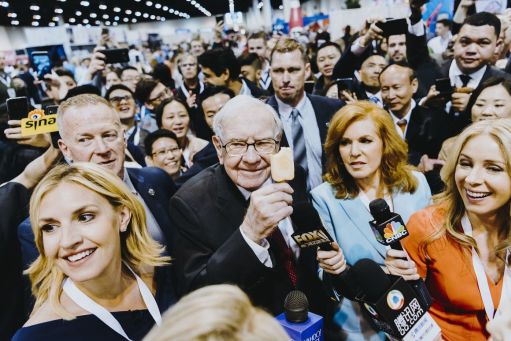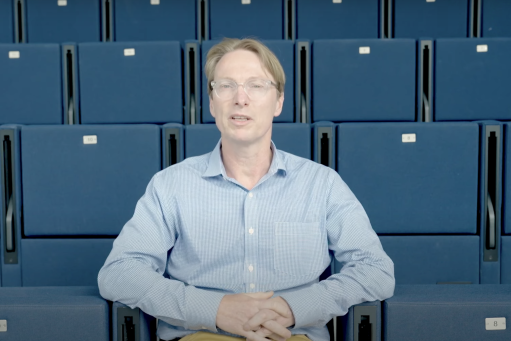5 Questions About Value Investing and Finance
Professor Tano Santos, the Faculty Director of Value Investing and Advanced Value Investing programs at Columbia Business School, discusses the school’s approach to teaching value investing and finance.
A proud ambassador for Columbia Business School’s storied value investing program, Professor Tano Santos recently joined us to answer five questions about value investing, finance and the work of the Heilbrunn Center for Graham and Dodd Investing, which he serves as director.
Q: What inspired you to pursue an academic career in finance?
Tano Santos: Well, I guess like everyone in academia, I'm a bit of a nerd. I've always loved studying, but studying society, why some societies prosper and others do not. Why societies innovate and others do not. Thus, economics, because economics is perhaps one of the most important determinants of social outcomes and social phenomena, and financial markets in particular because it’s economics in real time. Everything gets reflected in financial markets: information, behavioral biases, agency considerations, policy, politics. Financial markets are wonderful lab to study everything related to economics and to society at large.
Q: What led you to the role of faculty director at the Heilbrunn Center?
Tano Santos: Value investing is intellectually very challenging. It’s multidisciplinary. It combines economics (a good understanding of the economics of the business operations of the firm), accounting (how those business operations get projected onto the financial statements to provide an accurate, or perhaps inaccurate, representation of those business operations), and finally how these two things come together in the valuation. So, this multidisciplinary approach, the fact that you have to bring all these things together, attracted me enormously because it utilizes all my skills as an economist. It's a wonderful challenge and one that one gets addicted to very quickly.
Q: Is a market correction a dangerous time to start value investing?
Tano Santos: Actually, I would say there’s nothing better than a market correction as a starting point for an investment career. Remember, value investors are like firemen: we run to the fire when everybody else is running from it. So, I cannot emphasize what an auspicious time is to become an investor. Second, what I would say is the importance of fundamental analysis. I cannot emphasize this enough. More than ever, it is important to think deeply about the economics of the business, the operations of the firm, what drives value, what drives those business operations, and whether the shocks and disruptions are affecting the assets of the firm. The sustainability of the earnings. The sources of customer captivity that give this company its competitive advantages. It is important to think about those issues now more than ever, and how they project on to the financials. So, this idea of bringing economics, accounting and valuation is more important than ever.
But in this particular period of time, it is also key to understand where the other side of the transaction is coming from. Why are they selling when I'm buying? Why are they buying when I'm selling? It is key for a successful investment strategy, for a successful investment career I would say, to always know where the other side of the transaction is coming from. Remember, the key aspect of trading in financial markets is that one never knows the information the other side of the transaction brings to that transaction. Asking oneself what that information can be that elicits buying when I'm selling, or selling when I'm buying, is absolutely crucial for a successful investment career.
Q: How can students make use of value investing techniques?
Tano Santos: The tools and techniques of value investing are applicable well beyond the traditional realm of the value investor, which is stock selection. Clearly there are areas such as infrastructure investing or ESG, where it will be very beneficial to apply traditional value investing ideas. Let me emphasize another one: activism. Activist investors are the agents of their own returns. They basically take positions in firms to affect operational change and implement new managerial approaches to whatever the firm is doing in order to improve operations. One learns a lot thinking through activist situations because activist investors bring together those three pillars that are the core of the value investing toolbox: economics, accounting, and valuation. So, this is clearly an area where students can be very excited. We bring a lot of activist investors to speak with the students and to basically show the deep connections between the traditional value investing ideas and what activist investors do.
Q: Tell us about your podcast “Value Investing with Legends.”
Tano Santos: The Heilbrunn community extends well beyond the classroom. It has always been the ambition of the center to connect to that larger community and the podcast, of course, is an ideal way of doing so — to connect to all our friends in the investing community in many different parts of the world who listen to the podcast. The other thing is that we wanted to give that larger community a taste of the things that we do at the center, and in particular a window into the many wonderful investors that come to class to speak with the students to give the larger community a glimpse of the methods, ideas and principles that underpin their investment philosophy, and to spread the best practices of value investing.
Follow this link to find out more about the Value Investing with Legends podcast, in which Professor Santos interviews some of the world’s greatest investors.
More Webinars

Why Value Investing is Making a Comeback
Professor Tano Santos, the Faculty Director of Value Investing and Advanced Value Investing programs at Columbia Business School, outlines the reasons why value investing is returning to a period of ascendancy.

What Will Drive the Global Markets in 2023?
Columbia Business School Professor Abby Joseph Cohen recently joined former Dean Glenn Hubbard to discuss the forces that could shape the economy and markets in the year ahead.

How Will Working From Home Impact Office Real Estate?
Stijn Van Nieuwerburgh, the Earle W. Kazis and Benjamin Schore Professor of Real Estate at Columbia Business School, discusses his new research on the impact of remote work on the New York City commercial real estate sector.

5 Questions About Real Estate and Finance With Professor Stijn Van Nieuwerburgh
Columbia Business School’s Earle W. Kazis and Benjamin Schore Professor of Real Estate Stijn Van Nieuwerburgh discusses the growing use of data in real estate and the school’s latest curricular innovations.
Rise to the challenge.
The COVID-19 pandemic has changed the world of business, while bringing historical inequities and injustice into sharp relief.
Subscribe to Leading Through Change to receive the latest insights from Columbia Business School to help you navigate this unprecedented time.
